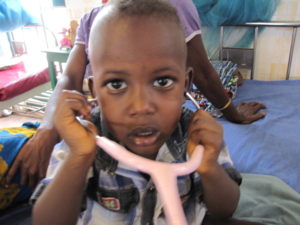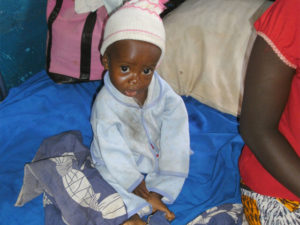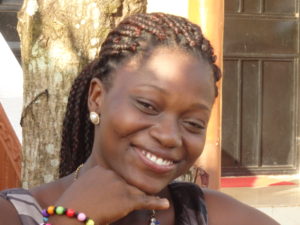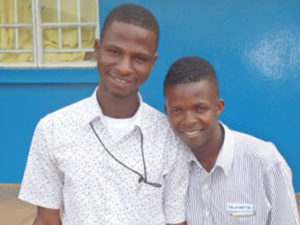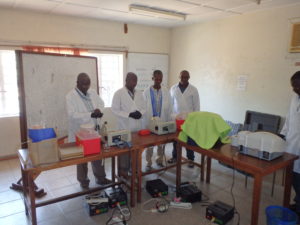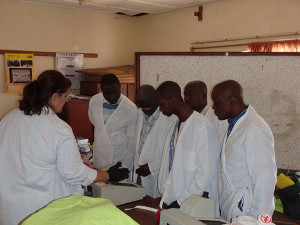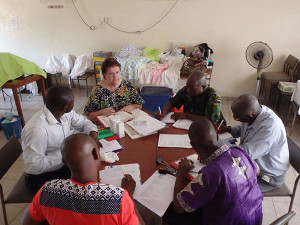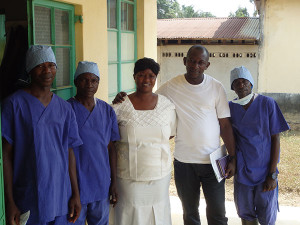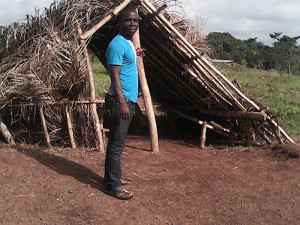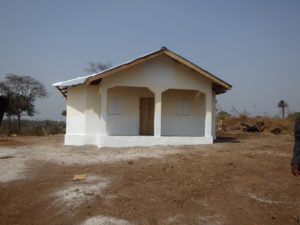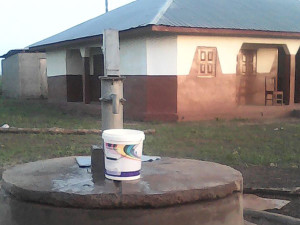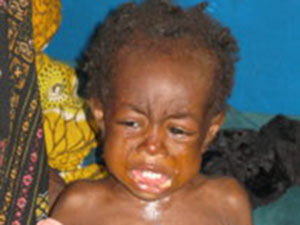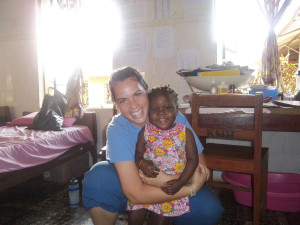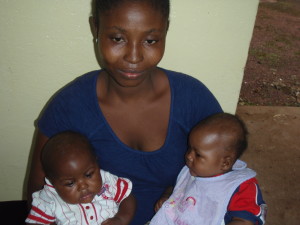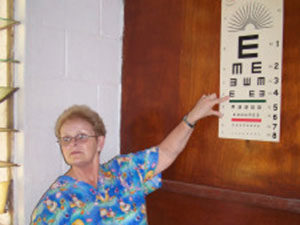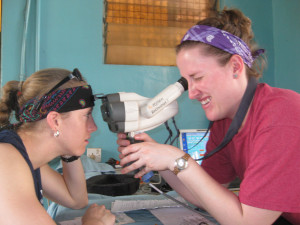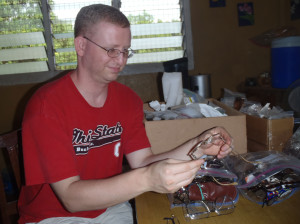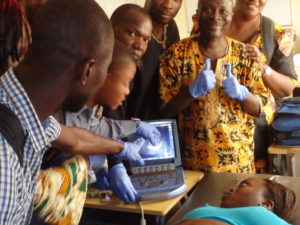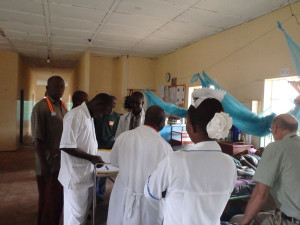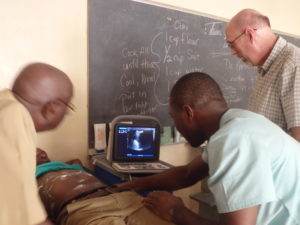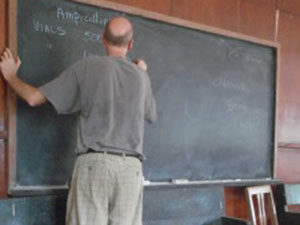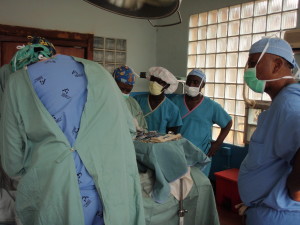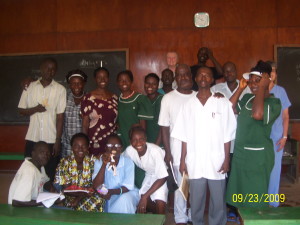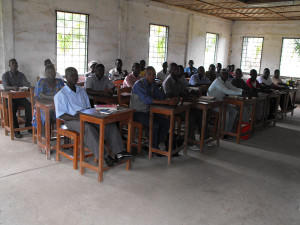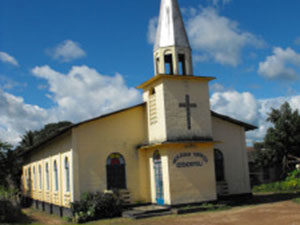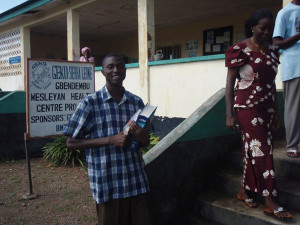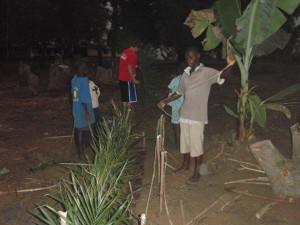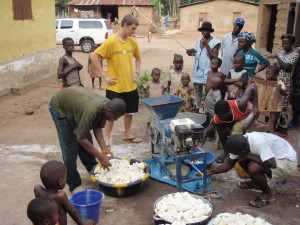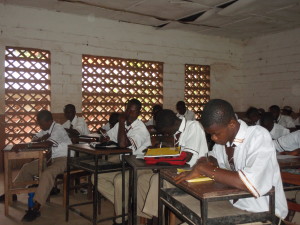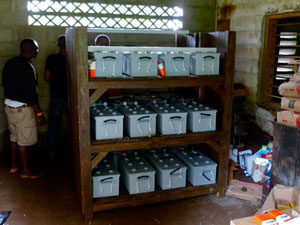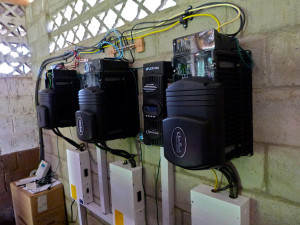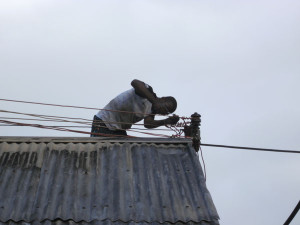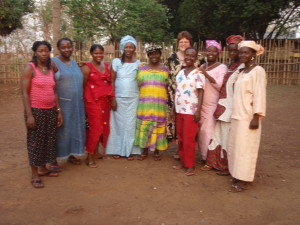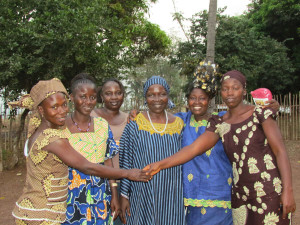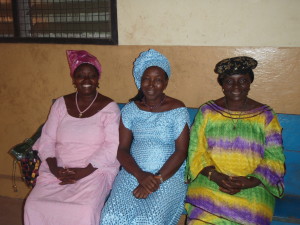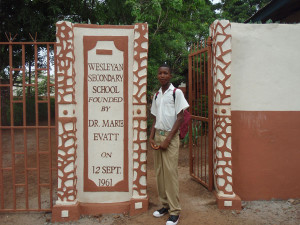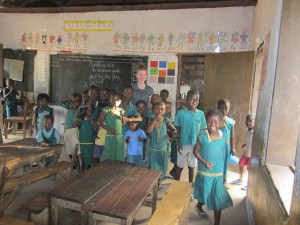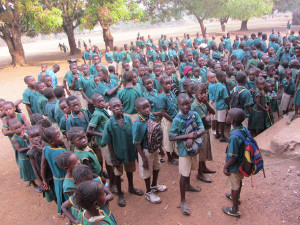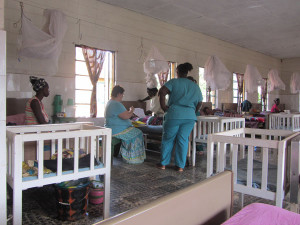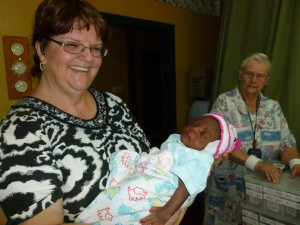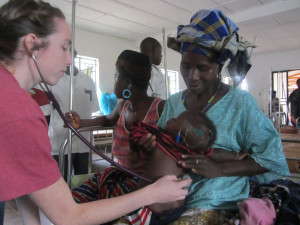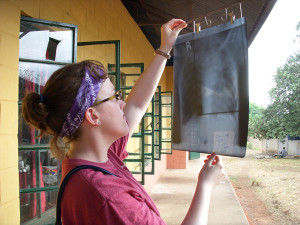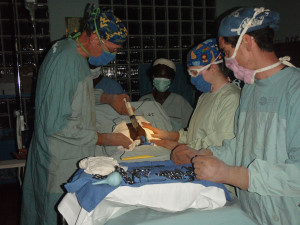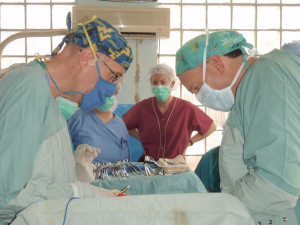Current Projects
Hospital Electricity Project – To have electricity is absolutely mandatory for medical care. WAEMM through their generous donors has continued its solar projects. Kamakwie Wesleyan Hospital got a solar system to provide electricity as well as Panguma hospital. Three clinics also now have basic electricity. But with 13 Hospitals and 40 clinics in the Christian Health Association of Sierra Leone this seemed to be a never ending project. Last year with Energy For Opportunity, Inc and other NGO’s we applied for a grant through the European Union. We were blessed to be approved. This grant could provide large electric systems for two hospitals with money generating systems that would make the hospitals more self-sufficient. In addition, 10 clinics could have electricity and small businesses like charging stations to aid their cash flow. We say could because this is a fund matching program. For every dollar that WAEMMcan contribute, the grant will provide four dollars. Please pray that many donors come forward to help with this project. WAEMM is committed to improving the healthcare that these institutions provide but at the same time supporting and encouraging their evangelical work.
Click on the video play button to see how important electricity is to the hospitals and clinics. The staff at the hospitals and clinics can not improve the quality of care without having power for oxygen, nebulizers, laboratory testing and more. They are willing to learn new skills but without electricity that can not happen.
Scholarships – In the past, WAEMM has provided scholarships for many students from High School to Masters programs. In an attempt to focus in on the medical needs of the country, WAEMM will be providing scholarship money through the hospitals only for all new applicants. Employees who are recommended for further education in the medical fields by their hospital will be considered for funding. Although one time donations are accepted for current students, new students will not be accepted unless funding is available to complete their program and all funds will be administered through their home hospital. WAEMM will make payments biannually to the hospital for the duration of the training program. All students must maintain a B average or above and will be required to return to their institution and work there for 2 years for each year of education provided there is a position available.
Laboratory Equipment for Hospitals and Clinics - For a hospital or clinic to be able to do basic laboratory procedures seems a simple requirement. But in Sierra Leone, most hospitals and nearly all clinics can not do even the simple procedures. Through our generous donors,WAEMM has begun a new project to procure and ship all the equipment and supplies, and to train at the hospitals and clinics to do these life saving procedures. The cost for each of the hospitals is approximately $8000 and $500 for each clinic. With 13 hospitals and 40 clinics this is a big undertaking. Please pray with us as we continue this project as we have the funding. To date we have completed 5 hospitals and 3 clinics. More are scheduled to receive their equipment and training in October. Truly this will improve the quality of healthcare in Sierra Leone
Community Churches – The first church was started in the Bombali district and continues to grow. It is in a Muslim village and the elders of the village helped to build the church with funding provided by a Presbyterian church in Ohio. Next they helped build a parsonage and a well was dug to provide water for the church, parsonage and the junior high school. The big news with the community churches is the rapid expansion. There are already 15 Community Churches! All have had the land given by the community and are hoping they too can have buildings in the future. Kadaimba is our newest block building church. This was sponsored by a UMC in Michigan. The pastors at the churches are all volunteer and in addition to their work at the churches, they volunteer at the local primary school as teachers. The communities help give them a very small salary and the good news is they are seeing an improvement in the students who are taking standardized test to go on to junior and high school! WAEMM has some donors who have given a small amount to Albert monthly so he can oversee all the churches. They also help provide money to buy all the pastors a bag of rice every three months.
The young pastors have started a training program with Rev. Sam Kargbo to become strong pastors. They meet every two weeks for two years and three times a year for a week long seminar. We are proud of their strong desire to be biblical in their preaching and personal lives. Please pray for these young men as they learn to to minister to their churches!
Children's Malnutrition Program – A hospital based program. Each hospital has the same problem in pediatrics. If a child is sick, their chance of survival decreases dramatically if they are also malnourished. Unicef has a well documented program to bring the child back to health with supplements of "plumpy nut" and a milk based formula, followed by inpatient and outpatient education, but often they do not have enough of the supplements. When the mother brings the child back for supplements she is given education in how to better feed her child with available foods. If there is not a good supply of the supplements, she comes back for the supplements and education but when she does not receive the supplement she stops coming for the education. We know that if a mother and child completes the full program, the chance of the child again becoming malnourished is greatly reduced. WAEMM is attempting to raise money to help the CHASL hospitals to get supplements when they are not available from Unicef, thus preventing the breakdown in the education and recovery of the mother and child. Plumpy nut supplements for one hospital costs about $500 per month.
Eye Program – This program was started at KWH and will be expanded to other faith based hospitals where there is a need. Eye glasses are donated from the US and brought to Sierra Leone. There they are scanned with a lens meter to determine their strength. They are bagged and labeled and the prescription is scanned into a laptop computer. Outreach screening clinics determine those that are in need of eye care. These patients are referred to the hospital where they can receive glasses. If cataracts are discovered they are referred to a participating hospital where cataract nurses or doctors removed the cataracts. WAEMM collects prescription glasses, sun glasses and reading glasses for this program. We cannot however, use lenses with no frames. We are also collecting money to put the lens meter and laptop in new locations. Currently most people have to travel over 100 miles to the two centers that dispense glasses in CHASL. Moving glasses over these roads is difficult but the nurses and doctors will come to our bush centers. A complete scanning and diagnostic unit with the laptop costs approximately $5000. WAEMM provides the education to the local staff at the hospital to set up and run an eye center.
Ultrasound for Hospitals– Ultrasound is a diagnostic instrument that is invaluable in Sierra Leone. It does not require any chemicals or films or even continuous electricity and yet it can evaluate a patient in life threatening situations. Although the machine is used daily in obstetrics, it can be used for many other examinations. With the assistance of Sonosite's Sound Caring program, WAEMM is trying to get one portable rechargeable ultrasound in each of the 12 CHASL hospitals. Currently we are bringing two new machines to Sierra Leone to place in the hospitals. Dr. Karen will also be teaching the CHASL health care providers how to use the machines and how to care for them. WAEMM is raising money to buy these units at $5000 per unit. Dr. and Dr. Asher are also teaching basic ultrasound at Njala University in the CHO and SRN programs. They can't always be at the hospital that has a patient that needs ultrasound. Through training, their efforts can be multiplied.
Medical staff education – An ongoing program through WAEMM. Specialists in various medical and technical fields come to Sierra Leone and provide further training to the staff at CHASL hospitals and clinics. Ongoing education is vital to the constant upgrading of the level of care provided by the CHASL institutions. Medical and technical individuals, medical teams and church mission teams come and are hosted by CHASL and WAEMM to ensure save travel and accommodations and efficient use of the time available in country.
Completed Projects
Gbendembu Bible School – A two year program designed to train ministers for the Wesleyan church. The program also stresses the need to be bi-vocational, teaching tailoring, fabric dyeing, and farming as well as biblical studies. Teachers were active in helping with the program. Bikes were purchased for the students to do their work in distant villages. Tools were donated to the college to use in the carpentry program
Growing Scholarship – This program was started by Matthew Asher and the young men who are leaders in the youth program of the Bombali District. Gardens are planted and the crops are harvested and sold to provide scholarships for students who want to attend school. The total cost of tuition, uniforms, books and shoes is $65 for primary students, $80 for Junior High Students and $90 for a Senior High Student. Student Recipients are required to work in the gardens. Sponsors from the US have aided the project in funding students to help make the project self-sufficient sooner. The goal for total self-sufficiency is five years (2013). A mechanical shredder and dryer for cassava was purchased to increase the revenue from the crops. Currently the program is continuing independently.
Hospital Electricity at KWH – the hospital is totally dependent on generators for power. ITEC, an electrical engineering firm from PA, will be making an exploratory visit to help determine the needs for a power plan for the future. Energy for Opportunity, Inc. will do the local installation and planning and purchasing. In the past, we were only able to run the generators for 2 hours two times daily, due to restrictions in fuel and repairs on the generators. The hospital now has a solar system that allows the lights and the lab to functions 24 hours per day and surgery to be done on a emergent basis without generator use.
Ladies Institute – A yearly program organized by the ladies of the churches to give the girls an alternative to the women's society. This is to strengthen the Christian walk of the ladies and to prevent female circumcision which is performed as part of the society membership. Churches make sewing cards which they use to teach a skill or craft at the meetings. These can be seen in the photos under Volunteer Opportunity- Workers at Home. In addition, fabric, buttons, beads and thread are needed.
Kamakwie Wesleyan Schools – The schools in Kamakwie were occupied by the rebel forces during the ten year civil war. Very little has been done to return the schools to their past glory. The schools are in poor repair, have very few desks and chairs and desperately need supplies. There are also in need of teachers in all ages and subject matters. Many supplies have been provided, the buildings have been painted and many repairs have been done. Plumbing has been installed.
OB/Pediatric Ward – the OB ward is one of the busiest areas of Kamakwie Wesleyan Hospital. Often we have no beds and patients must sleep on the floor. Recently funds have been raised and construction has begun on a new addition. It will have bathrooms and running water. Like the other wards it will have solar lighting at night. This new building will be the new pediatric ward. After that move is made, the existing pediatric ward will be remodeled and bathrooms and running water will be installed. And finally the existing OB ward will also be remodeled. All this has been completed and in addition all the wards have been tiled, giving the hospital a cleaner fresh look.
Operating Room Improvements – Kamakwie OR did not have general anesthesia and has limited air conditioning. We are hoping to expand to two OR’s and to have general anesthesia which will allow them to do an expanded number of procedures. We are also equipping the OR for ENT and Ophthalmology procedures. This has been completed with new air conditioning in each OR and a general anesthesia machine donated for the main OR.

